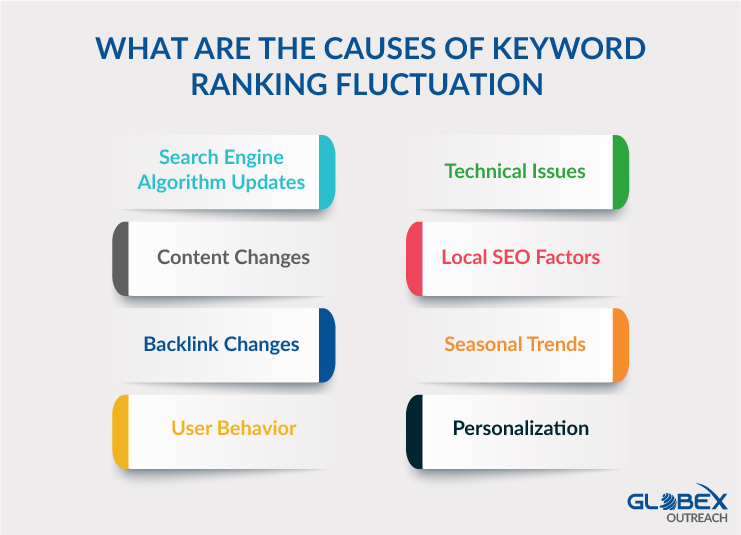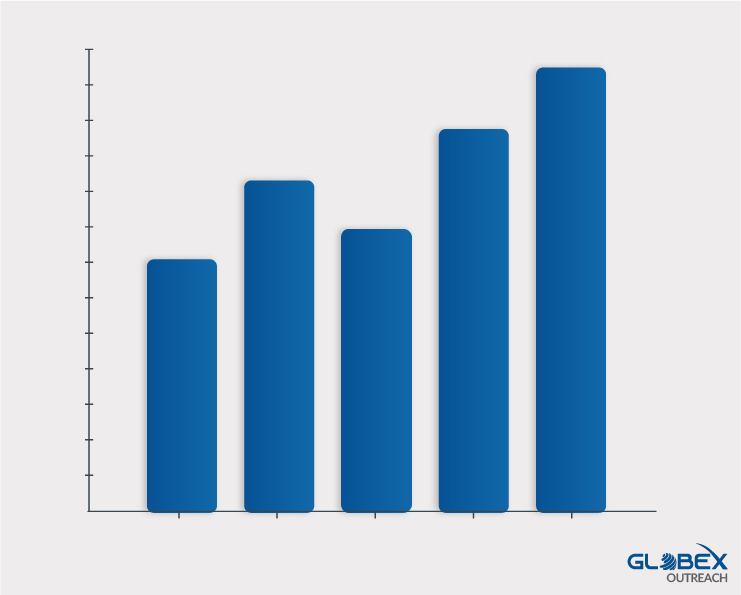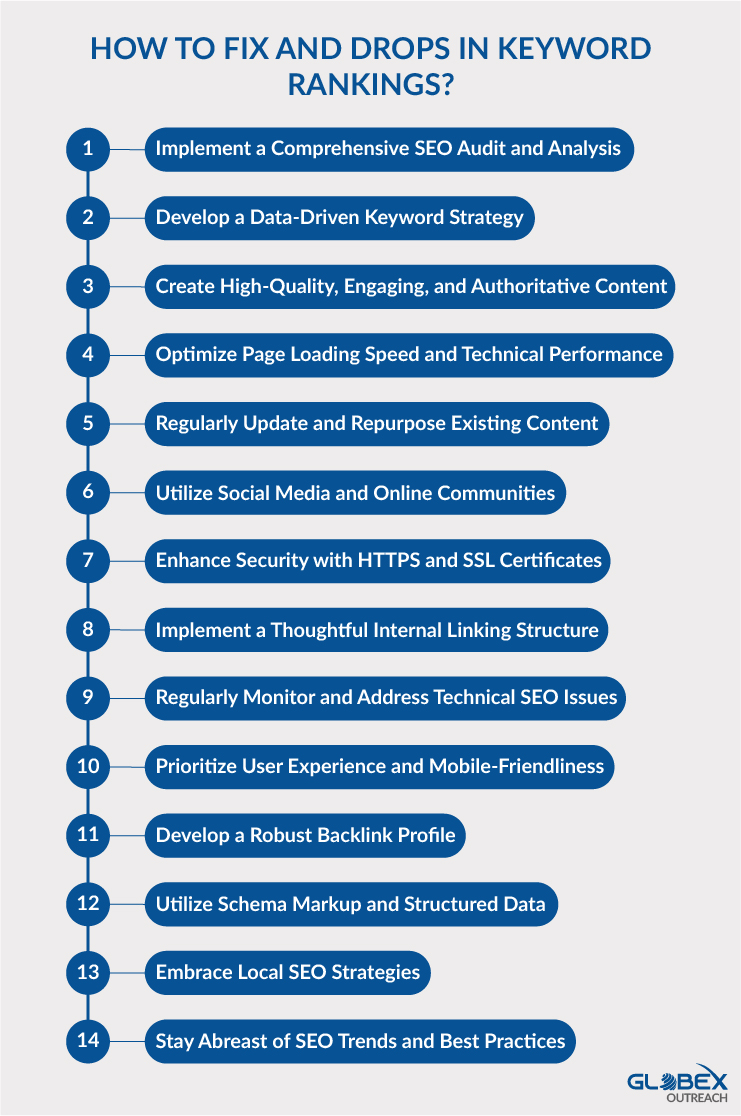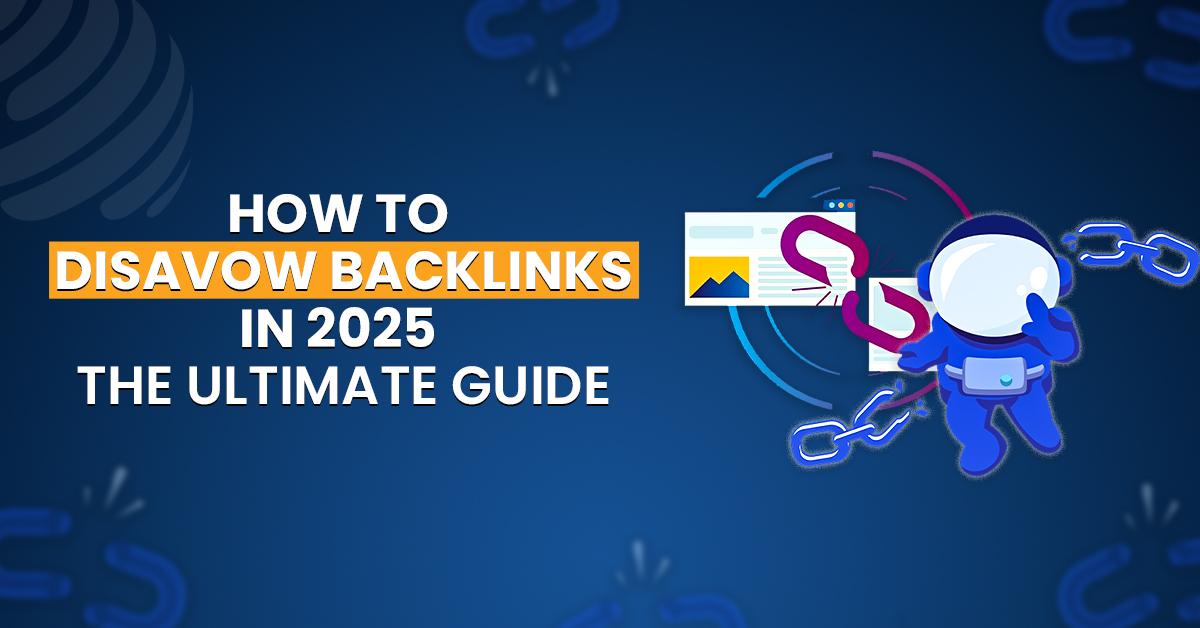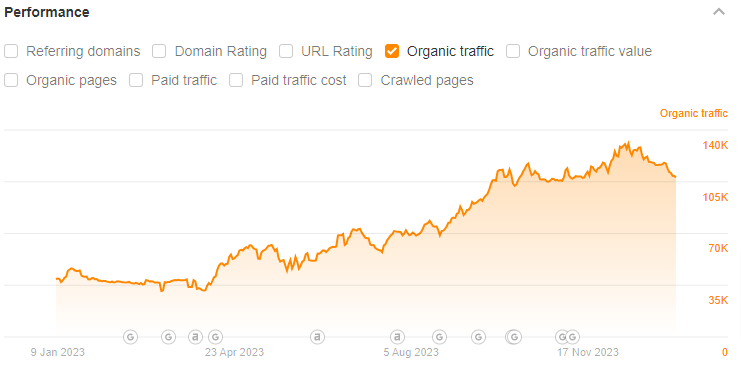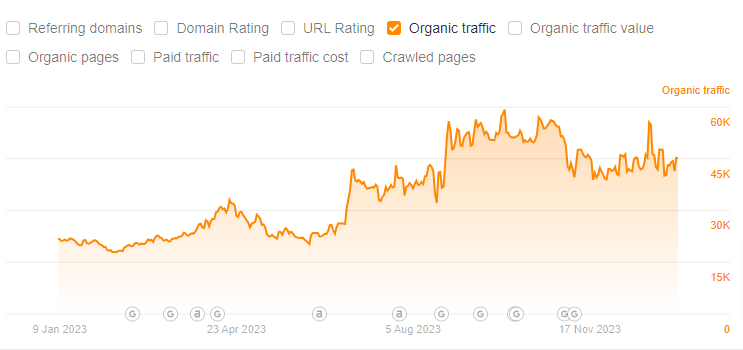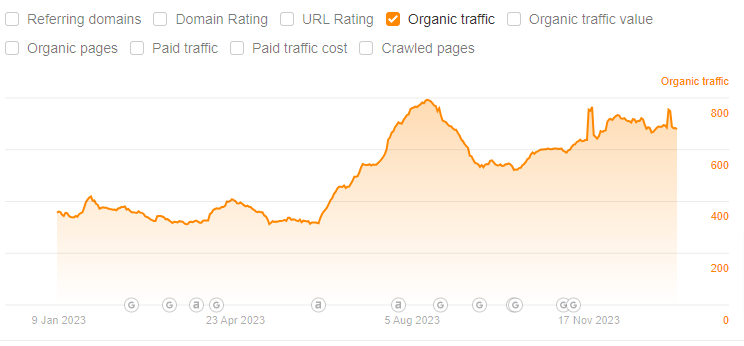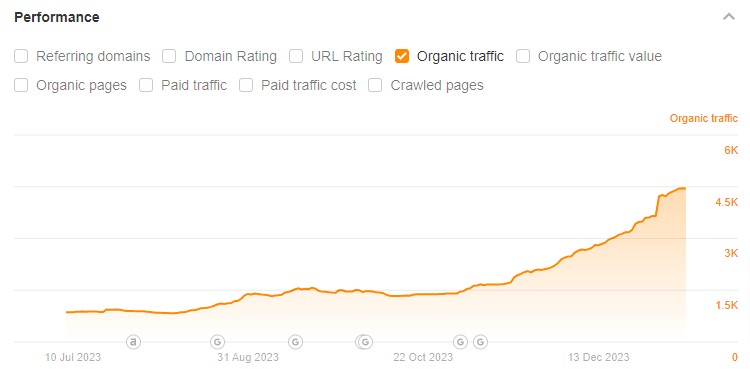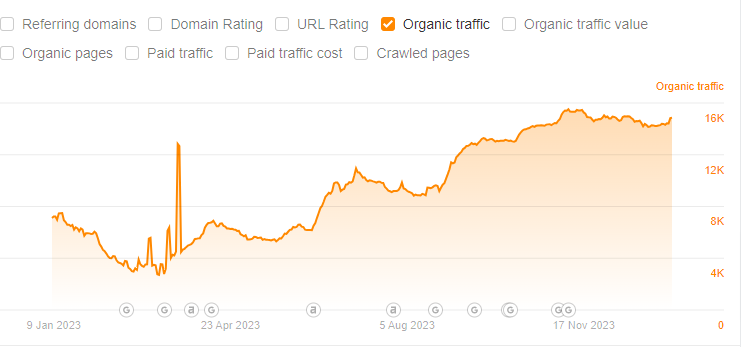In the vast landscape of digital marketing, where search engine visibility is paramount, understanding the nuances of keyword ranking fluctuation is essential. Every online business, whether small or enterprise-level, experiences the ebb and flow of keyword rankings on search engine results pages (SERPs). The intricacies of why and how these fluctuations occur can often be perplexing, leaving website owners and marketers seeking comprehensive insights.
In this article, we embark on a journey to unravel the mysteries of keyword ranking fluctuation. We delve deep into the core factors that influence these fluctuations, ranging from ever-evolving search engine algorithms and user behavior to the competitive strategies of businesses in the online sphere. With a keen focus on proactive strategies, we explore how businesses can not only comprehend the reasons behind these fluctuations but also master the art of stabilizing their keyword rankings effectively.
Join us as we explore the proactive steps, comprehensive analyses, and adaptive approaches necessary to navigate the dynamic terrain of keyword ranking fluctuation. By the end of this exploration, businesses will be equipped with the knowledge and strategies needed to not only withstand the challenges posed by keyword ranking fluctuation but also harness them to enhance their online presence and achieve sustainable success in the digital realm.
Let’s embark on this insightful journey to demystify the world of keyword ranking fluctuation.
Table of Contents:
|
20-Second Summary
Keyword ranking fluctuations are changes in the position of specific keywords in search engine results pages. It happens due to various causes like algorithm updates, content changes, and user behavior. But there are some ways to fix the drop in keyword rankings. These include implementing SEO audits, developing a data-driven keyword strategy, creating and updating high-quality content, and staying abreast of the latest SEO trends.
What Is Keyword Ranking Fluctuation?
We all have wondered why does my Google ranking keep changing?
But have we ever thought of understanding what keyword ranking fluctuation actually is?
Let’s find out:
Keyword ranking fluctuation refers to the changes in the position of a specific keyword or set of keywords in search engine results pages (SERPs) over a period of time. Search engines like Google use complex algorithms to determine the ranking of web pages for specific keywords. These algorithms take into account various factors such as relevance, content quality, backlinks, user experience, and many others.
Keyword ranking fluctuation is a common phenomenon in the field of search engine optimization (SEO). SEO professionals and website owners closely monitor keyword rankings to assess the effectiveness of their SEO efforts. Fluctuations are natural, and it’s important to analyze trends over time rather than focusing on short-term changes. SEO strategies should be adaptive, considering the dynamic nature of search engine algorithms and user behavior.
Keyword Ranking Fluctuation Causes
Why do keyword rankings fluctuate?
It is a million-dollar question indeed!
Keyword rankings fluctuate due to a variety of factors, reflecting the dynamic nature of search engines and user behavior.
Here are some of the primary reasons why keyword rankings fluctuate:
Search Engine Algorithm Updates
Search engines, especially Google, continually refine their algorithms. These updates aim to enhance the accuracy and relevance of search results. When an algorithm changes, websites that align with the new criteria might experience improved rankings, while others could see a decline. Major updates like Google’s Panda or Penguin can dramatically impact rankings, leading to significant fluctuations across the web.
Content Changes
Content is a core determinant of search rankings. Search engines favor fresh, relevant, and high-quality content. When website owners update their content, whether by adding new pages, refining existing ones, or incorporating multimedia elements, search engines reevaluate the site’s relevance. Content updates can cause fluctuations as search engines assess the changes in the context of user queries.
Backlink Changes
Backlinks are akin to votes of confidence from other websites. Search engines consider both the quantity and quality of backlinks. If a website gains new high-quality backlinks or loses existing ones, its authority and rankings can fluctuate. A sudden influx of authoritative links can lead to a boost in rankings, while the loss of reputable links might result in a decline.
Competitive Factors
The online landscape is highly competitive. When competitors optimize their websites, create better content, or acquire more backlinks, it can impact the rankings of other sites targeting similar keywords. Monitoring competitors’ strategies and adapting one’s own SEO efforts is crucial to staying competitive in search results.
User Behavior
User behavior metrics, including click-through rates (CTR) and bounce rates, provide valuable feedback to search engines. If users frequently click on a specific result, indicating relevance, that result might be promoted in the rankings. Conversely, a high bounce rate (where users quickly leave a page) could signal poor relevance, potentially leading to lower rankings.
Technical Issues
Search engines prioritize websites that offer a seamless user experience. Technical issues such as slow loading times, mobile-unfriendliness, security vulnerabilities, or broken links can impact user satisfaction. Websites experiencing these issues might see fluctuations in their rankings until the problems are resolved.
Local SEO Factors
For businesses targeting local audiences, factors like proximity to the searcher, consistent business information across directories, positive reviews, and Google My Business optimization are pivotal. Changes in any of these factors can lead to fluctuations in local keyword rankings, especially for location-specific queries.
Seasonal Trends
Certain keywords experience fluctuations due to seasonal trends. For instance, searches related to holidays, events, or weather-dependent activities can surge during specific times of the year. Websites optimizing for these keywords may see their rankings rise and fall accordingly with the seasons.
Personalization
Search results are increasingly personalized based on a user’s search history, location, and device. Personalization means that the same keyword might yield different results for different users. These personalized results can lead to fluctuations as users with varying profiles interact with search content differently.
In summary, the intricate interplay of these factors underscores the dynamic nature of keyword rankings. To navigate this complexity successfully, website owners and SEO professionals must remain vigilant, adapting their strategies to accommodate these fluctuations and ensuring continued visibility in search engine results.
Why Do You Need to Worry About Google Rankings Fluctuating?
Certainly, fluctuations in Google rankings can be a cause for concern for various reasons. Firstly, these fluctuations directly impact the visibility and traffic to a website. When a website ranks high on Google for relevant keywords, it attracts more organic traffic, which is crucial for businesses and online platforms.
Sudden drops in rankings can lead to a significant reduction in visitor numbers, potentially affecting revenue streams and online engagement. This decline in visibility might translate into missed opportunities, especially if competitors maintain their rankings stability, leading to a potential loss in market share.
Secondly, the credibility and trustworthiness of a website are closely tied to its search engine rankings. Users tend to trust websites that appear at the top of search results, often perceiving them as more reliable sources of information or services. Consistent top rankings establish a sense of authority and reliability.
However, when rankings fluctuate significantly, users might question the website’s trustworthiness. This lack of confidence can lead to decreased user engagement, affecting metrics such as bounce rates and conversion rates. Maintaining stable rankings is essential for building and preserving the trust of your audience.
Lastly, the competitive advantage of a website hinges on its search engine rankings. Businesses often invest substantial resources in SEO strategies to outrank their competitors. When rankings fluctuate, there’s a risk of losing this competitive edge. If a website’s rankings drop while competitors maintain or improve theirs, potential customers may opt for the more visible and stable options.
This shift in consumer behavior can directly impact sales, making it crucial for businesses to monitor and respond to ranking fluctuations effectively. In a highly competitive online landscape, stable rankings are fundamental for securing a prominent position in the market and ensuring a steady flow of organic traffic and conversions.
How to Analyze SERP Feature Volatility?
Analyzing SERP (Search Engine Results Page) feature volatility involves tracking the changes in different elements that appear on search engine results pages.
Here’s how you can analyze SERP feature volatility effectively:
Comprehensive Identification of SERP Features
- Explore a diverse range of SERP features, including featured snippets, local packs, knowledge panels, videos, news results, and more relevant to your industry.
- Understand the nuances of how these features manifest based on different user queries and intents.
In-Depth Utilization of SERP Tracking Tools
- Employ advanced SERP tracking tools like SEMrush, Moz, Ahrefs, or Google Search Console to meticulously monitor your target keywords.
- Leverage the historical data offered by these tools to identify trends and fluctuations in specific SERP features over prolonged periods.
Thorough Monitoring of Search Engine Algorithm Updates
- Stay vigilant about significant search engine algorithm updates, particularly those announced by Google, to comprehend the evolving criteria for displaying SERP features.
- Analyze how algorithm changes impact the prominence and volatility of specific features across diverse search queries.
Detailed Analysis of Competitor SERP Strategies
- Conduct in-depth analyses of competitor SERPs to discern their chosen SERP features and track how these features change over time.
- Extract actionable insights from competitor strategies to refine your own approach, adjusting based on observed SERP feature fluctuations.
Precise Analysis of User Intent and Feature Relevance
- Delve deeply into the intent behind the keywords you target, understanding the varied user intents that prompt different SERP features.
- Analyze how shifts in user intent influence the appearance and volatility of specific SERP features, tailoring your content and optimization efforts accordingly.
Strategic Content Optimization for Targeted SERP Features
- Craft content with meticulous precision, optimizing it specifically for various SERP features. Implement structured data and clear, concise information to enhance your chances of being featured.
- Continuously refine and update your content, aligning it with the ever-changing criteria for appearing in specific SERP features to maintain a competitive edge.
Thorough Monitoring of Local SERP Features
- Pay meticulous attention to local SERP features, especially if your business has a local presence. Local packs, events, reviews, and business information updates can significantly influence these features.
- Keep track of changes in local features and adapt your local SEO strategies to leverage emerging opportunities and address potential challenges.
Detailed Analysis of User Experience Metrics
- Scrutinize user experience metrics such as click-through rates (CTR), bounce rates, and time-on-page for specific SERP features.
- Identify patterns and trends in user behavior, particularly noting any shifts in CTR for specific features, to gauge changing user preferences and optimize your strategies accordingly.
By conducting an in-depth analysis under these detailed headings, you’ll gain comprehensive insights into SERP feature volatility, allowing for a more nuanced understanding of the factors influencing search engine rankings and user interactions with different SERP features.
How Often Does Google Experience Rank Fluctuations?
Keyword ranking fluctuations on Google are a common and dynamic aspect of the digital landscape. The frequency with which these fluctuations occur can be attributed to several factors.
Firstly, Google’s search algorithms are continually evolving. The company makes thousands of changes to its algorithms every year, both minor tweaks and major updates. These changes are implemented to enhance the relevance and quality of search results. Even subtle alterations in the algorithms can lead to noticeable shifts in keyword rankings. Consequently, website owners often witness fluctuations in their rankings as Google refines its search criteria.
Secondly, the competitive nature of online business plays a significant role. Websites are in constant competition for the top spots on search engine results pages. If a competitor optimizes their website, creates superior content, or improves their backlink profile, it can cause corresponding fluctuations in the rankings of other websites targeting similar keywords. The digital landscape is highly adaptive, with websites jostling for visibility based on their optimization strategies.
Thirdly, user behavior is a crucial factor. Google tracks how users interact with search results. If users frequently click on a specific result and find it valuable, Google might boost that result’s ranking. On the other hand, if users quickly bounce back to the search results after visiting a page, it might signal to Google that the content was not relevant, potentially leading to a drop in rankings for that particular keyword.
On top of that, the emergence of new content and websites can also cause fluctuations. Fresh and authoritative content can quickly rise through the ranks, leading to fluctuations in the rankings of existing pages. Moreover, localized searches and the rise of mobile usage have introduced further variables. Google often tailors search results based on the user’s location and device, leading to diverse sets of search results for the same keyword.
In a nutshell, keyword ranking fluctuations are a natural consequence of the ever-changing algorithms, competitive landscape, user behavior, and technological advancements. Staying abreast of these fluctuations is essential for businesses and website owners to adapt their SEO strategies effectively and maintain a prominent online presence.
How to Fix Keywords Ranking Drop?
Fixing keyword ranking fluctuations involves a strategic and proactive approach to search engine optimization (SEO).
While it’s impossible to completely eliminate fluctuations, you can minimize their impact and maintain stable rankings through the following strategies:
Implement a Comprehensive SEO Audit and Analysis
Conduct a thorough audit of your website’s SEO elements, including on-page and off-page factors, site structure, and technical aspects. Identify areas of improvement, such as broken links, slow-loading pages, and mobile responsiveness. By understanding your website’s current state, you can make informed decisions on optimization strategies.
Develop a Data-Driven Keyword Strategy
Utilize keyword research tools to identify relevant, high-traffic keywords specific to your niche. Analyze user intent behind these keywords to align your content with search queries. Regularly update your keyword strategy based on changing market demands and trends, ensuring your website remains optimized for relevant terms.
Create High-Quality, Engaging, and Authoritative Content
Craft compelling, informative, and shareable content that resonates with your target audience. Address common pain points, answer frequently asked questions, and provide in-depth insights. Well-researched and expertly written content not only engages visitors but also attracts natural backlinks, enhancing your website’s authority and stability in rankings.
Optimize Page Loading Speed and Technical Performance
Pay meticulous attention to your website’s loading speed and technical performance. Slow-loading pages can lead to high bounce rates and negatively impact rankings. Optimize images, leverage browser caching, and minimize server response times. Implementing these optimizations enhances user experience and encourages search engines to rank your site higher, resulting in more stable rankings.
Regularly Update and Repurpose Existing Content
Content freshness is a crucial ranking factor. Regularly update and repurpose your existing content to reflect the latest industry trends and information. This not only keeps your audience engaged but also signals to search engines that your website is active and relevant. By adding new insights, statistics, or multimedia elements, you provide value to both users and search engine crawlers.
Utilize Social Media and Online Communities
Leverage social media platforms and online communities related to your niche. Engage with your audience, share valuable content, and participate in discussions. Social signals, such as likes, shares, and comments, can indirectly influence search engine rankings. Moreover, social media platforms serve as additional channels through which your content can gain visibility, potentially leading to more backlinks and improved rankings.
Enhance Security with HTTPS and SSL Certificates
Ensure your website is secure by migrating to HTTPS and obtaining SSL (Secure Sockets Layer) certificates. Google considers HTTPS a ranking factor and displays a “Secure” label in the browser, instilling trust in visitors. Secure websites are favored in search rankings, providing a slight but significant advantage. Additionally, a secure website protects user data and enhances the overall user experience, indirectly contributing to stable keyword rankings.
Implement a Thoughtful Internal Linking Structure
Develop a strategic internal linking structure within your website. Internal links guide users to relevant content, improving navigation and user experience. Search engines utilize internal links to understand the hierarchy and importance of pages within your site. Well-placed internal links distribute page authority, ensuring that essential pages receive adequate attention from search engine crawlers. This balanced distribution can lead to consistent keyword rankings across your website.
Regularly Monitor and Address Technical SEO Issues
Conduct regular technical SEO audits to identify issues such as duplicate content, crawl errors, and broken links. Addressing these technical issues ensures search engine crawlers can index your site effectively. Use tools like Google Search Console to identify and resolve crawl errors promptly. By maintaining a technically sound website, you create a stable foundation for your SEO efforts, reducing the likelihood of sudden keyword ranking fluctuations.
Prioritize User Experience and Mobile-Friendliness
Enhance user experience by ensuring your website is intuitive, easy to navigate, and visually appealing. Optimize for mobile devices, as an increasing number of users access the internet via smartphones and tablets. Mobile-friendly websites are favored by search engines, contributing to better rankings and reduced bounce rates.
Develop a Robust Backlink Profile
Focus on acquiring high-quality, relevant backlinks from authoritative websites within your industry. Natural, organic backlinks from reputable sources boost your website’s credibility. Monitor your backlink profile regularly to disavow spammy or low-quality links, ensuring a strong and trustworthy link profile.
Utilize Schema Markup and Structured Data
Implement schema markup to provide search engines with structured data about your website’s content. This enhances the visibility of rich snippets, such as star ratings, product information, and event details, in search results. Rich snippets can significantly improve click-through rates, positively impacting your website’s traffic and rankings.
Embrace Local SEO Strategies
If your business serves a local audience, optimize your website for local search. Claim and optimize your Google My Business listing, encourage positive customer reviews and ensure consistent NAP (Name, Address, Phone number) information across online directories. Local SEO strategies enhance your visibility in location-based searches, boosting your rankings in specific regions.
Stay Abreast of SEO Trends and Best Practices
Keep yourself updated with the latest SEO trends, algorithm updates, and best practices within the industry. Follow reputable SEO blogs, attend webinars, and participate in forums to stay informed. By adapting your strategies to evolving search engine algorithms, you can proactively address potential fluctuations and maintain stable rankings.
By incorporating these additional tips into your SEO strategy, you can further fortify your online presence and minimize the impact of keyword ranking fluctuations. These comprehensive approaches not only enhance your website’s visibility but also provide valuable user experiences, creating a robust foundation for stable and competitive keyword rankings.
Keyword Rank Change FAQs
Why do keyword rankings fluctuate frequently?
Keyword rankings fluctuate due to various factors, such as changes in search engine algorithms, competitive activities, content updates, user behavior, and technical issues. Search engines constantly evolve, leading to shifts in rankings as they reevaluate website relevance and quality.
How often should I expect keyword ranking fluctuations?
Keyword ranking fluctuations can occur daily, especially for highly competitive or trending keywords. Minor fluctuations are common and usually not a cause for concern. Major fluctuations might be linked to algorithm updates and can occur a few times a year.
Can I prevent keyword ranking fluctuations entirely?
It’s impossible to prevent keyword ranking fluctuations entirely due to the dynamic nature of search engines. However, you can minimize their impact by maintaining high-quality, relevant content, and adapting your SEO strategies based on ongoing analysis and industry best practices.
Do keyword ranking fluctuations affect all types of websites equally?
Keyword ranking fluctuations affect all websites, but their impact can vary. Established, authoritative sites might experience fewer fluctuations compared to newer or less authoritative websites. However, all websites should be vigilant and responsive to maintain stable rankings.
How can I identify the cause of sudden drops in keyword rankings?
Sudden drops in keyword rankings can be alarming. To identify the cause, analyze recent changes to your website, backlink profile, and content. Check for Google algorithm updates and review your competitors’ activities. Technical issues, such as server problems or broken links, can also cause drops in rankings.
Will fluctuations in keyword rankings affect my website’s traffic and conversions?
Yes, significant fluctuations in keyword rankings can impact your website’s organic traffic and conversions. Higher rankings generally lead to more visibility and clicks. Conversely, drops in rankings can result in decreased traffic, potentially affecting your conversion rates and revenue.
How long does it take to recover from a sudden drop in keyword rankings?
The time it takes to recover from a sudden drop in keyword rankings depends on the cause of the drop. If it’s due to a minor technical issue, recovery can be quick after resolving the problem. However, recovering from major drops caused by algorithm updates or significant content issues might take several weeks or months of strategic SEO efforts.
What proactive steps can I take to manage keyword ranking fluctuations?
Proactive steps to manage keyword ranking fluctuations include regularly updating your content, acquiring high-quality backlinks, monitoring your website’s technical health, adapting to algorithm changes, and staying informed about industry trends. Regular analysis of your rankings and competitor activities is essential for adjusting your SEO strategies promptly.
Conclusion
Understanding and managing keyword ranking fluctuations is essential for maintaining a strong online presence. In the dynamic world of search engine optimization, fluctuations are inevitable due to evolving algorithms, changing user behavior, and the competitive landscape. While it’s impossible to completely eliminate fluctuations, businesses can adopt proactive strategies to minimize their impact.
Regular monitoring of keyword rankings, staying updated with industry trends, and conducting thorough analyses are crucial. By focusing on providing high-quality, relevant content, optimizing user experience, and building authoritative backlinks, websites can create a stable foundation for their rankings. Adapting to algorithm updates, addressing technical issues promptly, and engaging with users on social platforms are equally vital.
Ultimately, a strategic and adaptive approach, coupled with a deep understanding of the factors influencing keyword rankings, empowers businesses to navigate fluctuations effectively. By implementing these proactive measures, websites can not only maintain stable keyword rankings but also enhance their visibility, credibility, and user engagement in the ever-changing digital landscape.



